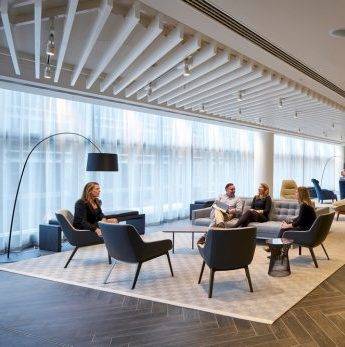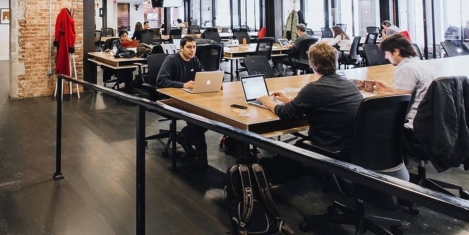July 3, 2018
UK firms may be lagging those of other nations in offering flexible working
 The UK lags behind other nations in the shift to remote and flexible working, putting more emphasis on effective meetings to coordinate scattered teams, a new report, ‘The Modern Workplace 2018: People, Places & Technology’ by software company Condeco has found. The research claims that across the world workers are in the midst of a shift to flexible and remote working – spending more time working from home, on the move or from multiple locations. However, the UK is significantly behind in embracing these trends, which could negatively affect worker satisfaction as well as holding back firms who are competing for the best international staff.
The UK lags behind other nations in the shift to remote and flexible working, putting more emphasis on effective meetings to coordinate scattered teams, a new report, ‘The Modern Workplace 2018: People, Places & Technology’ by software company Condeco has found. The research claims that across the world workers are in the midst of a shift to flexible and remote working – spending more time working from home, on the move or from multiple locations. However, the UK is significantly behind in embracing these trends, which could negatively affect worker satisfaction as well as holding back firms who are competing for the best international staff.














 A major research study “
A major research study “
 Business Secretary Greg Clark proposed new laws in Parliament yesterday (June 11th) that new large firms will have to justify their chief executives’ salaries and reveal the gap to their average UK worker. It means that for the first time, UK listed companies with more than 250 UK employees will have to disclose and explain this difference – known as ‘pay ratios’ – every year. However, according to data published today by the Chartered Management Institute (CMI) and
Business Secretary Greg Clark proposed new laws in Parliament yesterday (June 11th) that new large firms will have to justify their chief executives’ salaries and reveal the gap to their average UK worker. It means that for the first time, UK listed companies with more than 250 UK employees will have to disclose and explain this difference – known as ‘pay ratios’ – every year. However, according to data published today by the Chartered Management Institute (CMI) and 


 The provision of flexible office space is increasing as landlords look to capitalise on its increasing demand by occupiers. Alongside this a significant proportion would be happy to work in partnership with a flexible office space provider. According to a new study; UK Landlords & Investors Embrace the Flexible Revolution from CBRE, the majority of UK landlords (92 percent) believe that flexible office space is on the brink of becoming mainstream and are not only keen to monitor but respond to the growth of flexible office space. Over three quarters (77 percent) of survey participants stated that they are currently considering some form of flexible provision, with 79 percent declaring an intention to act within the next 12 months.
The provision of flexible office space is increasing as landlords look to capitalise on its increasing demand by occupiers. Alongside this a significant proportion would be happy to work in partnership with a flexible office space provider. According to a new study; UK Landlords & Investors Embrace the Flexible Revolution from CBRE, the majority of UK landlords (92 percent) believe that flexible office space is on the brink of becoming mainstream and are not only keen to monitor but respond to the growth of flexible office space. Over three quarters (77 percent) of survey participants stated that they are currently considering some form of flexible provision, with 79 percent declaring an intention to act within the next 12 months. 


















June 17, 2018
Fathers Day offers a chance to ponder the disadvantages faced by many working dads
by Julia Waltham • Comment, Flexible working, Wellbeing
More →